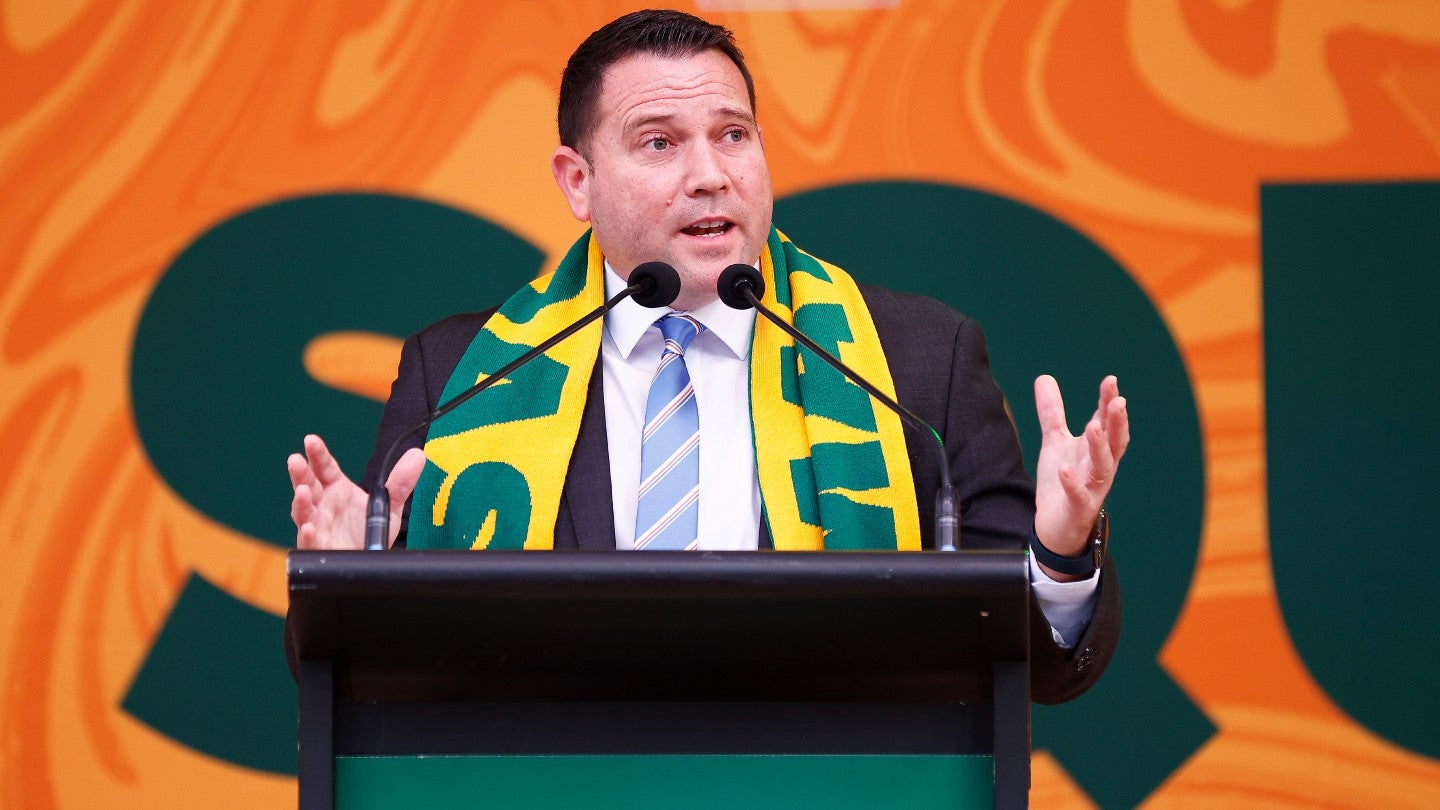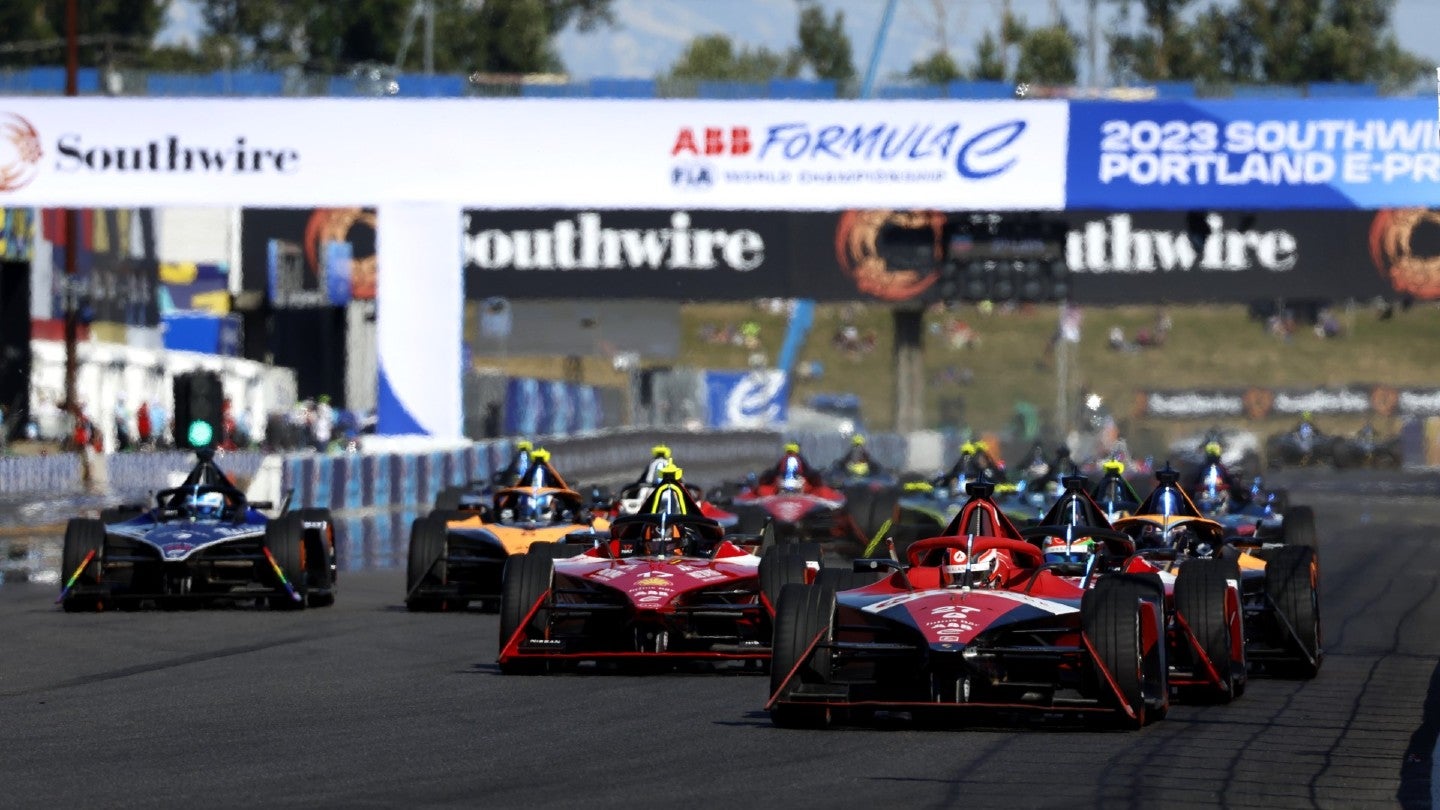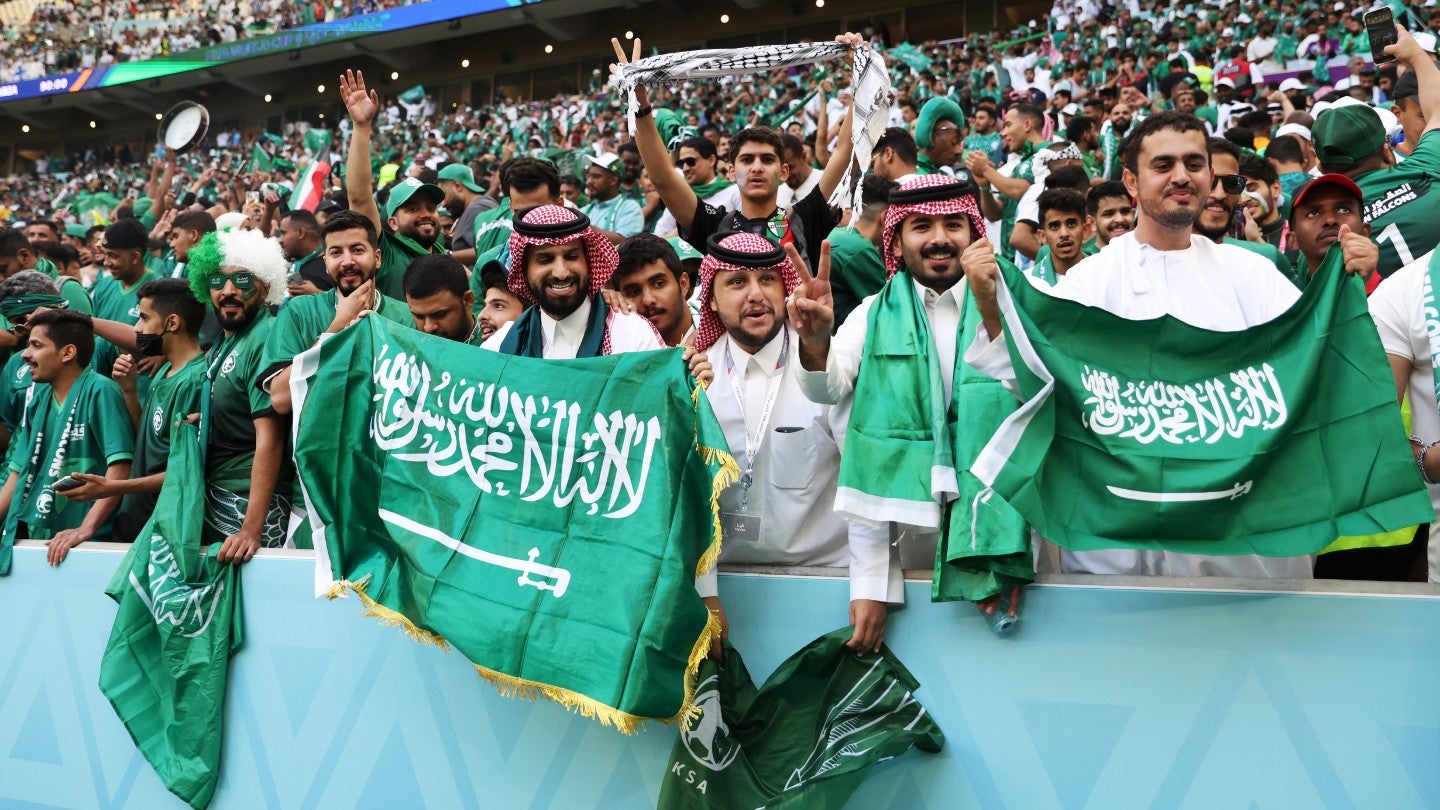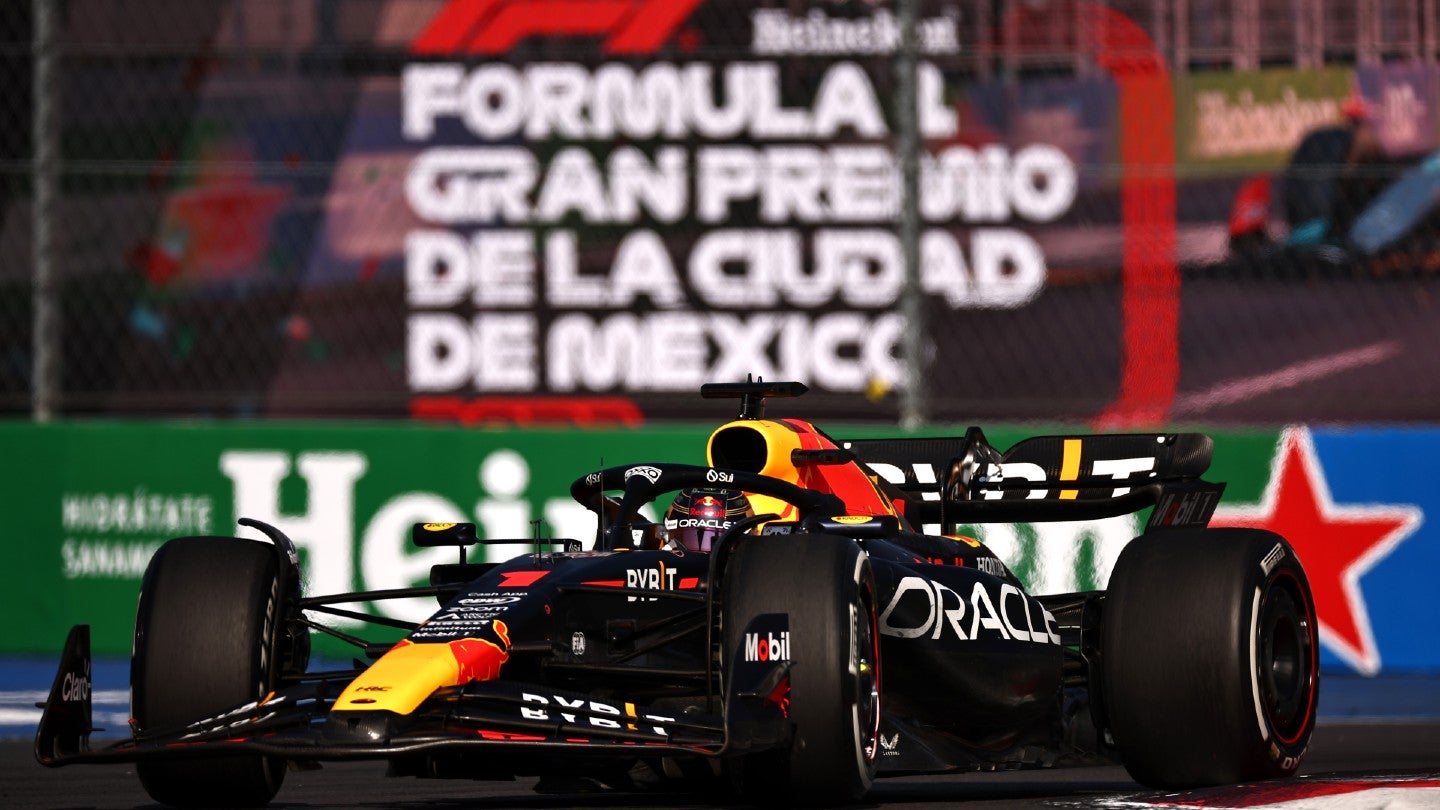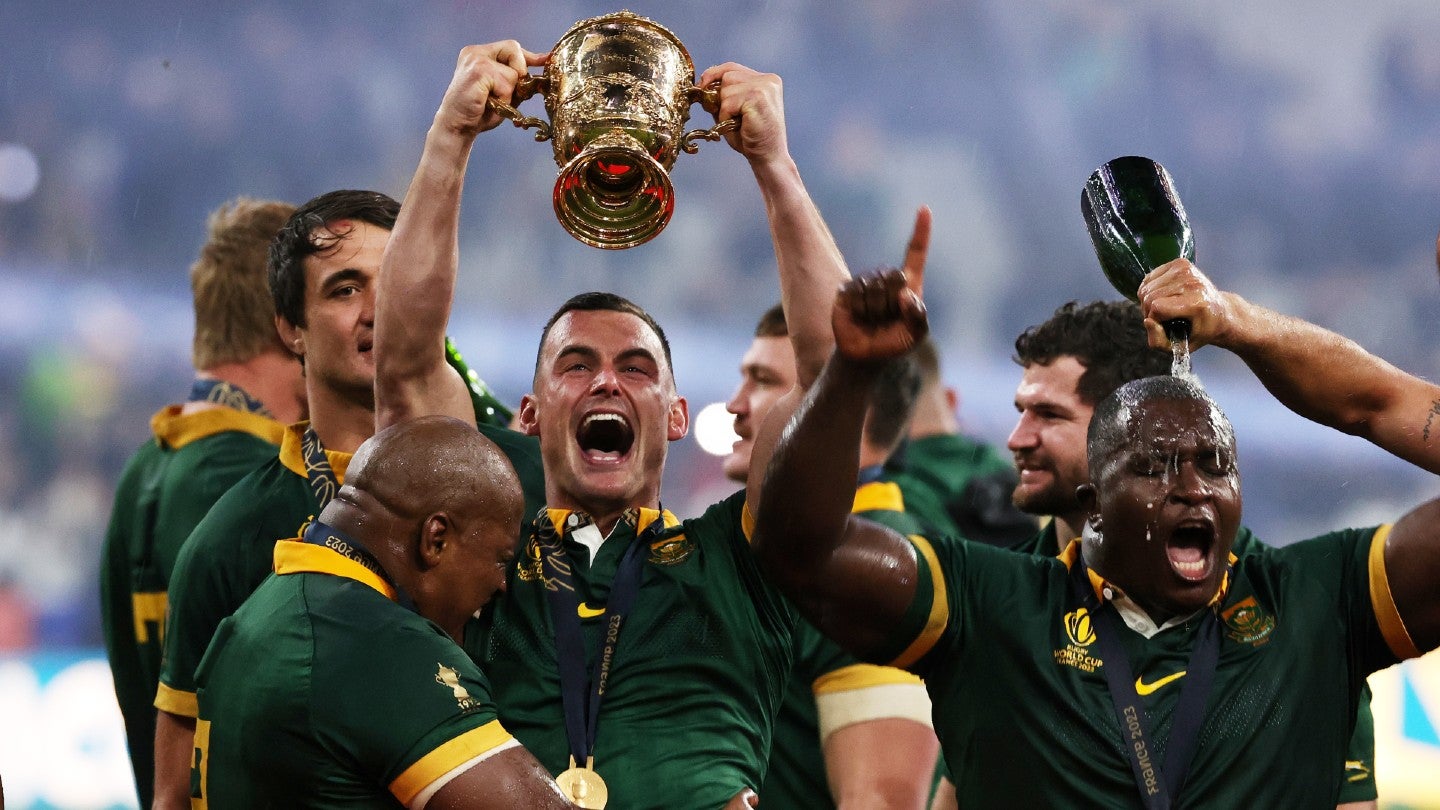Football Australia (FA) withdrew its interest in staging soccer’s 2034 FIFA World Cup due to a lack of confidence in the outcome of the bidding process producing a “favorable” decision for the country in a battle against Saudi Arabia.
The governing body today confirmed its withdrawal from the race to stage soccer’s showpiece tournament and instead views the 2026 AFC Women’s Asian Cup and FIFA’s expanded Club World Cup (CWC) in 2029 as more realistic options.
In a statement hours before FIFA’s deadline for declarations of interest, FA said it opted not to enter the bidding process “having taken all factors into consideration.”
Chief executive James Johnson explained that with doubts over whether they could overcome the Saudi bid, a strategic decision was ultimately taken to focus on the Women’s Asian Cup and CWC.
Speaking at a media briefing today, he said: “It's part of being diligent in a decision-making process. Any decision I take for Australian football, I look at the strengths, weaknesses, opportunities, and threats and when I went through that process, I realized that we could have a shot, but in the end, the outcome was not going to be favorable to Australia. That was my impression.
“I don't think it was a slam dunk that it would go to Saudi but for us, it's more important that we're able to bring more competitions back to Australia and I felt that if we put all our time, effort, and resources into 2034, then that might damage us on 2026 and 2029 so that's how we weighed up the decision around 2034.”
Some reports have suggested that Australia had come under pressure from FIFA not to bid for the 2034 World Cup ahead of today's deadline to ensure Saudi Arabia’s staging of the tournament.
The move comes after the Football Association of Indonesia announced it was pulling out of its bid to host the same edition, leaving Australia as the only rival to Saudi Arabia.
FIFA had called for nations in Asia and Oceania to bid for the rights to the tournament after announcing that the inter-continental bid from Morocco, Spain, and Portugal had been given the rights to the 2030 edition.
Saudi Arabia then confirmed its bid for the 2034 World Cup earlier this month (October 11).
Johnson hopes FA’s decision to withdraw will improve its chances to land the Women’s Asian Cup and CWC.
He said: “There have been no promises given on the 2026 Women's Asian Cup or the 2029 Club World Cup, but the facts are we are already in a bidding process for 2026, and on merit we have a very good chance to win that.
“We just hosted the biggest and best Women's World Cup (WWC) so naturally, it's a fair extension to hopefully award us with that tournament, it makes sense. We know that we'll sell stadiums out so we will make that tournament a success if we're given the opportunity.
“As for the Club World Cup, we think we're a great option for FIFA which is trying to create a new competition. We've got a good merit bid. It will be competitive and ultimately what we want is a good process and I think there will be some goodwill created here by us not going for 2034.
“There are no promises, we get that, but we want to win it fairly and squarely and we think we're well positioned to do that given the decision we've taken with regard to 2034.”
Australia previously bid for the 2022 World Cup but only received one vote as it was eventually given to Qatar.
Johnson insisted FA is keen to avoid a repeat of this as he admits the Saudi bid is tough to match given the country’s wider investment in soccer.
He said: “We have to be realistic, Saudi is a strong bid. They've got a lot of resources, not just resources relating to the 2034 World Cup, but they're disrupting European club football now where you've got clubs in Saudi that can pay more money than a lot of European clubs.
“This is a disruption in the market that we're seeing, and it cuts broader than just the 2034 World Cup, but that's what positions Saudi in a strong way. They have resources and their government top down is prioritizing the investment in football and that's difficult to compete with.”
When asked what Saudi can offer that Australia can’t, Johnson replied: “It's not that we don't have resources. We were very fortunate that our government invested heavily in the Women's World Cup, but we want to be smart in how we allocate those resources that might be available.
“We want to be smart with where we invest our own time and effort and how I look at it is we're in a leading position for the Women's Asian Cup and the Club World Cup.
“I didn't feel that we were in a leading position with the men's World Cup so it came down to logic and to dollars and cents and if I'm looking at the risk to the organization, but also the opportunity to advance Football Australia's interest, I just see more upside in investing time, resources, and efforts into two competitions that I do believe we can win the hosting rights for.”
For the 2026 Women’s Asian Cup, Australia will also need to compete with Saudi Arabia after the country submitted a bid to host the tournament earlier this year.
However, Saudi has never hosted a major women’s soccer tournament, which could work in Australia’s favor after staging the WWC with New Zealand in July and August, as well as a previous Women’s Asian Cup in 2006.
Saudi has already been given the hosting rights for the men’s Asian Cup in 2027.
Jordan and Uzbekistan have also expressed an interest in the women’s edition in 2026.
Australia is also likely to face competition for the Club World Cup and could potentially miss out on every tournament.
Johnson said: “There is a possibility that we end up with nothing and we're aware of that. But we're an emerging football nation, we believe we are a football nation now and we're confident on the back of a Women's World Cup that on merit, we can host good competition.
“We do fancy our chances and that's not me trying to be arrogant, that's me being objective based on the level that we've lifted the Women's World Cup to so we're ready to do a good job for the AFC in the case of the Women's Asian Cup, and for FIFA with respect to the Club World Cup and our goal is to use the tournaments to create a legacy on the ground for Australia but also help the AFC and FIFA elevate these competitions just like we did with the Women's World Cup.
“There's a chance we get nothing but we're confident in our hosting abilities and we'll be putting our best foot forward.”
Australia is considering a joint bid alongside New Zealand to host the CWC in 2029, which would be the second edition of the competition.
The new event is the brainchild of FIFA president Gianni Infantino and currently features seven teams – six confederation champions and a representative of the host nation – playing annually.
However, in an effort to revamp the tournament, it will expand into a 32-team competition from 2025 (with that event to take place in the US) and be played every four years in June and July.
In Johnson’s view, the CWC will be “the most significant club football competition in the world” by 2029.
The last edition of the Club World Cup featuring only seven teams is being staged in Saudi Arabia’s Jeddah between December 12 and 22.


